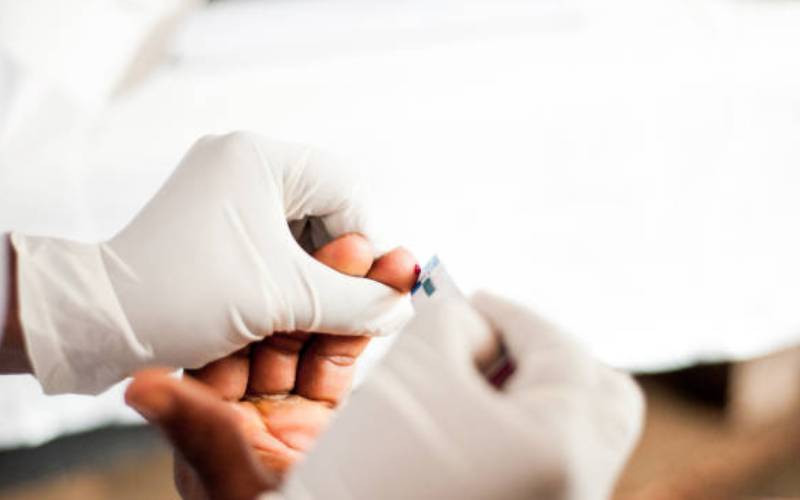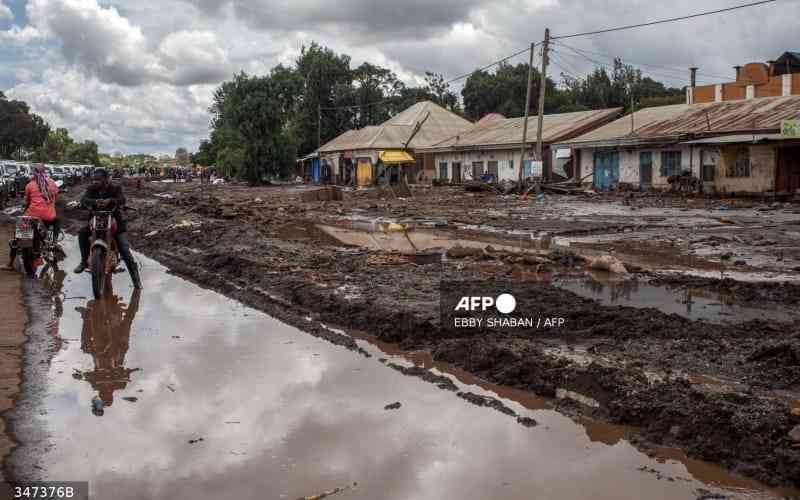In early July 2013, I made an eight hour boat journey from Mbita-Rusinga Town, in the western part of Kenya - to unveil the odds of an island in Kenya’s Lake Victoria. In the blue waters of Lake Victoria sets Remba Island which is located right on the North-South border between Kenya and Uganda, and just about three kilometers inside Kenya from Ugandan international border. Remba is a small and densely populated island of around 20, 000 people who are majorly migratory in nature, and whose economy is entirely dependent on fishing activities. The island is a cosmopolitan commercial place that hosts people from all over Africa. The majority of the residents are the Abasubas, the Luos and the Somalis of Kenya who make up to 20% of the total population, though there are also fishermen and traders from Southern Sudan, DR Congo, Tanzania, Uganda and from other African countries.“In Remba, we do fishing as the main economic activity though there are other businesses like shop-keeping, prostitution and even selling of chang’aa. There are also Masaais who offer us security and we pay them,” said Austin Omondi who is a fisherman in Remba Island.
At a distant glance, Remba Island is made of very many iron-sheet houses constantly being constructed on the limited land without any form of architectural master plan. Pathways exist anywhere and everywhere including dumping sites. “Earlier on, people used to build houses using mats which appeared too ordinary and weak. However, it’s easier for us to build durable houses using iron-sheets. All the tenants living in these houses must pay rental fees of between Ksh. 1000 to Ksh. 3 500 per month,” Austin Omondi explained. There are very many people who spend their nights in the cold shore of Remba island which is known as banda. This is because the number of houses constructed on the limited amount of land on the island cannot meet the demands of the people. There are some houses that can exclusively be rented twice within a period of 24 hours. The houses are referred to as “Usiseme” rentals. One can rent a house at daytime and another person can rent the same house at during the night. Usiseme which means, “Don’t say it” – are mainly used by people in ephemeral businesses on the island. There are some Usiseme houses which are only used by prostitutes and young fishermen who work at night and may need to rest in the day.
Beach management unit records show that the island receives over four hundred new visitors, while over one hundred also leave the island each day break. The Beach Management Unit Chairperson, Mr. Odhiambo says that the unit lacks a clear record of the number of people who leave the island because most fishermen are transient in nature, and keep migrating from one island to the other depending on the availability of fish in any of the islands in Lake Victoria.
Frail rules and administrative policies in the island have permissibly allowed criminals to use the island as a remote hiding place from the arms of the law. The island has got nine police officers who have been charged with the mandate of maintaining law and order to over 20, 000 people. Plausibly, the officers are not able to offer sufficient security to such a big population, and many people have eventually become victims of such a dread finality of poor administrative capacity.
Fishing Business in Remba Island
Fishing activities in Remba Island is a mix of business prosperity that generates over Ksh. 5 Million per day, and a streak of exploitation, untamed lawlessness for contraband operations - in a place with no regular police force to take care of this commercial immensity. Most of the boats are owned by people who don’t live on the island but all of them have employed agents to take care of their boat operations. The agents have the power to hire and fire fishermen at will and keep fishing business records. Majority of the fishermen are young men, most of who have dropped out of school and are aged between 12 to 35 years. The owners of the boats get between 70 – 80% of the profit made in a day’s fishing. The remaining 20 – 30% of the profit is divided among the fishermen. An individual is allowed to own as many boasts as possible. A good example is one Ugandan woman who own up to 35 boats. The same boat owners also have possession of other businesses like shops, houses, hotels and even bars.
Health Risks in Remba Island
It is not an easy thing to describe a place like Remba Island in words when it comes to sanitation and health matters. Upon approach to the island from around three kilometers, it’s possible to see swarms of birds like hawks hopping on the huge amounts of garbage collected anywhere without any preliminary concern to the dangers that can come with such conditions. The island that hosts over 20, 000 people has got no basic garbage management system. “As you can see, we have garbage everywhere including the lake. This is the same water that we use for bathing, cooking and other chores,” Otieno Oriaro who is a businessman said. The feel of rotten fish carcasses, desolate rocky ground and rubbish under the feet gives a foreboding warning of the dangers that the residents of Remba Island are exposed to. There are only four public latrines in the island, two of which are kept locked by their owners at the local primary school. The latrines are simple holes, shallowly dug on the rocky ground. Most of these corrugated metal latrines leak into the nearby lake, and the smell from them is overwhelming. It’s because of these inadequacies that have made many of the residents resort to defecate or otherwise “help themselves” on the open land without any shame. During rainy periods, the same human wastes are transferred by flood into the surrounding lake shores of Remba.
At one of the main medical shops around, a number of things were going on but many of the residents are very skeptical to the medical services in the island, claiming that the so-called doctors lack medical expertise. “There are instances when some of these health officers in Remba have given wrong medication to children; and the children eventually died. Some of these people have got no health knowhow. They only want money from the locals,” said Otieno Oriaro. Evidently, there are rampant malnutrition among very many children and multiple sexually transmitted diseases with clinical signs of HIV in majority of the people who were being attended to by doctors.
 The Standard Group Plc is a
multi-media organization with investments in media platforms spanning newspaper
print operations, television, radio broadcasting, digital and online services. The
Standard Group is recognized as a leading multi-media house in Kenya with a key
influence in matters of national and international interest.
The Standard Group Plc is a
multi-media organization with investments in media platforms spanning newspaper
print operations, television, radio broadcasting, digital and online services. The
Standard Group is recognized as a leading multi-media house in Kenya with a key
influence in matters of national and international interest.
 The Standard Group Plc is a
multi-media organization with investments in media platforms spanning newspaper
print operations, television, radio broadcasting, digital and online services. The
Standard Group is recognized as a leading multi-media house in Kenya with a key
influence in matters of national and international interest.
The Standard Group Plc is a
multi-media organization with investments in media platforms spanning newspaper
print operations, television, radio broadcasting, digital and online services. The
Standard Group is recognized as a leading multi-media house in Kenya with a key
influence in matters of national and international interest.








